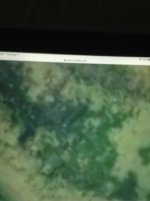creatmosfairy
Jr. Member
- Aug 29, 2008
- 23
- 39
Hello,
The 2 shipwrecks are in mexican waters in the 24 miles area and is under protection of the INAH underwater archaeology department MX.
The story goes:
one spanish ship was wrecked and short time later one other ship(from a foreign country) arrived at the spot and salvaged 100.000 coins and other good from the wreck. The second ship also wrecked short time later after his recovery operation. The coins were lost in the second wreck. The crew was driven 5 days in his boat, than he arrived land.
The place of the wrecksites are a diving spots/ shoals with nice sealife/ divetour can booked
The 2 wrecks are not found to this day.
The 2 shipwrecks are in mexican waters in the 24 miles area and is under protection of the INAH underwater archaeology department MX.
The story goes:
one spanish ship was wrecked and short time later one other ship(from a foreign country) arrived at the spot and salvaged 100.000 coins and other good from the wreck. The second ship also wrecked short time later after his recovery operation. The coins were lost in the second wreck. The crew was driven 5 days in his boat, than he arrived land.
The place of the wrecksites are a diving spots/ shoals with nice sealife/ divetour can booked
The 2 wrecks are not found to this day.







